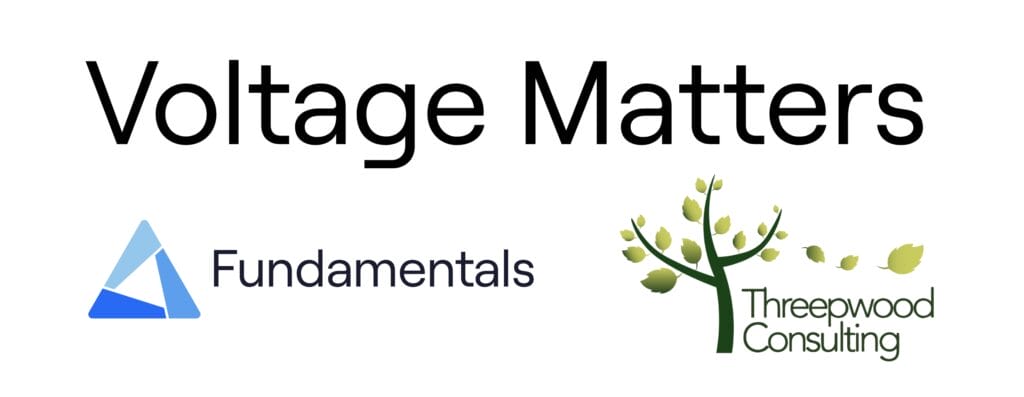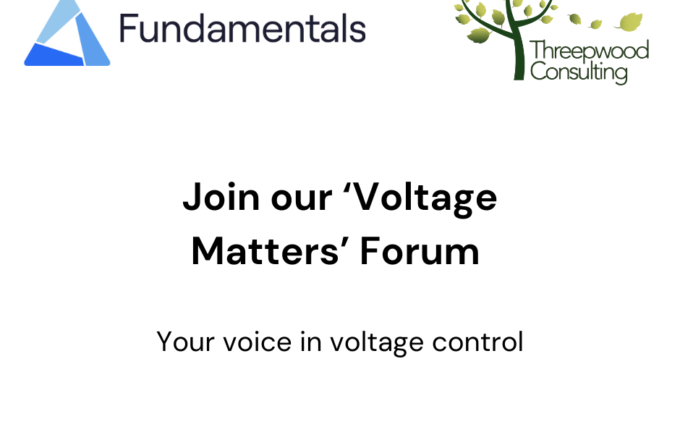Voltage Matters Forum Live –Summary and Take Aways

On 3rd July 2025, we proudly hosted our first Voltage Matters Forum Live event at the IET Birmingham: Austin Court. It was a fantastic day filled with insightful presentations, engaging discussions, and valuable industry networking.
Below is a summary of the event, along with key takeaways from the day.
- Situation
– High volts are a problem and it’s growing
– Also concerns over power quality and harmonics
– DNOs becoming more aware
– Networks can’t wait for standards to change (2028 for changes to ESQCR, 2026 for IET
regs). They MUST act now
– Concerns over the number of breaches of limits which are statuary not guidance – same as a speed limit on a road
– Derogation can be given but must be written and unsure who would do this (Ofgem enforcement authority for ESQCR, but derogation probably likely to be SoS) - Solutions
– Conservative assumptions have been used by networks for years during the analogue age. But these have turned out not to be conservative enough as we have widespread voltage issues evidenced in the digital age by sensors
– Visibility, analytics and control solutions are available from the supply chain. Innovation projects have the potential to return huge value, but only IF the networks roll them out
– We have world’s best start-ups and SMEs but they need big orders and long term commitment to manufacture in volume and reduce unit costs
– Significant concerns reported in networks operations teams due to volumes of data and number of control points. But automation and autonomous solutions are available, confidence needs building in analogue mindset companies. Control engineers fear the “robot apocalypse” will take their jobs
– Rollout of innovation does happen where Ofgem mandate it (e.g, sensing and visibility) or there is a strong incentive (pre-fault detection under IIS). ENW the only DNO willing to speculate on CLASS (different type of investors at the time) - Silos
– Silos in the industry hinder rollout of solutions with benefit other parts of the system and
customers
– There is a culture of distrust between silos. MOPs are not trusted to fix other issues when
on site for fear they will game the arrangement.
– Better collaboration across the whole system is needed to avoid potential unintended
consequence
– Supply chain suppliers don’t care about the silos and could happily deliver performance across customer, network and other energy industry operators - Savings
– Smart is proven. It’s reliable and cheaper
– Smart constantly wins prizes for projects, but the prizes should be rollout and commercialisation
– Network monitoring along is delivering a 22% increase in network hosting capacity. Monitoring + control will deliver even more. 50% extra free?
– Most network faults with advanced monitoring can be avoided (not third party damage). Potential to slash IIS CI and CML targets in ED3
– Conservation voltage reduction is proven (3 presentations from 3 DNOs today show confidence). A 1-1.2% saving for every 1% voltage reduction. £56/home/year; £1.5bn/year across GB; reduction of peak demand by 2.7GW (another £50bn+ saving on generation build)
– But detractors still doubt the findings and refused to be convinced, even with evidence from I&C sector too. Powerful voices drown out the potential good news
5. State
– Ofgem are looking seriously at voltage and are committed to voltage management as an element in ED3
– Ofgem need our help to make the voltage policy happen due to powerful detractors and doubters in the industry
– Ofgem are widening the scope of voltage management beyond NESO flex following their consultation meetings (final one net week and available for sign up)
– NESO have changed the flex product which CLASS delivers. It may now exclude CLASS from participating. A triumph of economist purism over engineering technical capability. We need to support ENW and Ofgem.
– Ofgem are also sympathetic to looking again at how innovation benefits beyond a price
control can we retained by the network companies. And also where benefits accrue to others.
– Totex isn’t working as planned and needs looking at. Network companies still prefer
Capex solutions to ongoing opex even when cheaper (they’ll buy on-load tap-changers to control LV voltage but won’t but won’t use reactive power services from customers).
Learn more

- Article
- Automatic Voltage Control (AVC/AVR)
- Other
Local voltage control is key to EV charging challenge
Read

- Article
- Other
Lucy Group acquires fault detection technology from Fundamentals
Read

- Automatic Voltage Control (AVC/AVR)
Australia’s ‘once in a century’ switch from coal to renewables
Read

- Automatic Voltage Control (AVC/AVR)
- Other
New Voltage Matters Forum attracts 300+ members as grid transition causes growing voltage issues
Read